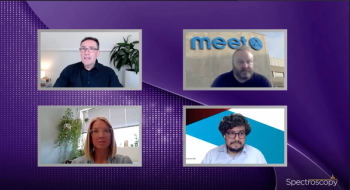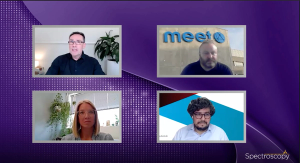Articles by Dr. Sascha Nowak

In this final episode, panelists discuss how advanced analytical techniques, combined with machine learning and automation, are transforming testing, recycling, and quality control for both lithium-ion and next-generation batteries while tackling emerging analytical challenges throughout the value chain.

This episode provides expert insights into safely transforming shredded lithium-ion batteries into reusable metals using ICP-OES.

In this episode, panelists consider how advanced elemental analysis of black mass is transforming lithium-ion battery recycling, tackling complex impurities and matrix effects to recover critical materials and support sustainable, closed-loop battery production.

This episode reveals how monitoring elemental impurities, optimizing processes, and managing supply chains can boost battery performance, safety, and sustainability.

In this episode, global experts discuss the challenges and best practices of elemental analysis in lithium-ion battery component manufacturing, focusing on lithium salts, graphite, silicon-carbon composites, and lithium metal oxides, with insights on sample preparation, digestion methods, and advanced ICP-OES techniques to ensure accurate, reliable, and efficient material characterization.

This episode explores the key challenges and best practices in lithium salt analysis during lithium-ion battery component manufacturing, focusing on sample preparation, digestion techniques, and advanced ICP-OES/ICP-MS methods to ensure accurate, reliable elemental quantification of both major and trace impurities.

This episode explores the chemical processing stage of lithium-ion battery production, showing how manufacturers maintain compliance and quality by using ICP-OES and ICP-MS to monitor major and trace elements, implement best practices, and ensure traceability through proper documentation.

In this episode, panelists discuss how real-time monitoring, automation, and data analytics in lithium-ion battery chemical processing improves product quality, operational efficiency, and environmental compliance.

This episode explores how chemical processing turns raw materials into high-purity, battery-grade components while highlighting contamination control, impurity monitoring, and best practices in analytical testing.

In this episode, thought leaders dive deep into discussing how ICP-OES and ICP-MS are used in the mining and refining of lithium-ion batteries to ensure accurate analysis, manage high-TDS samples, and detect ultra-trace elements.

This episode highlights which analytical techniques should be applied during the mining and refining stage to support sustainable production of lithium-ion battery materials.

In this episode, thought leaders discuss the role of elemental analysis during lithium extraction and refining—whether from brines, hard rock, or clays—to identify and manage impurities, optimize concentration and crystallization processes, and maximize yield and material purity for battery production.

This episode highlights the importance of quantifying major elements and trace impurities during mining and refining to safeguard battery performance, support regulatory standards, minimize environmental impact, and enable battery material traceability.

In this episode, a global panel of experts examines how trace elements and material impurities affect lithium-ion battery performance, longevity, and safety, and explores how ICP-OES and ICP-MS applied across the entire value chain—from raw material sourcing to recycling—can optimize first-pass yield, ensure quality control, and support more sustainable manufacturing practices.


